- Nutritional Benefits Of Pork For Cats
- What To Look For In Turkey-Pork Based Cat Food
- The Best Pork Cat Foods: Our Top Picks
- #1 Smalls Fresh Smooth Pig Recipe
- #2 Best Dry Food: Young Again LID Zero Mature Dry Cat Food
- #3 Lotus Just Juicy Pork Stew Grain-Free Canned Cat Food
- #4 Vital Essentials Pork Entree Freeze-Dried Raw Mini Patties
- Is Pork a Novel Protein for Cats?
- Why Should You Trust Us?
Wild cats primarily hunt small mammals, so meat-based proteins are essential in their diet. While chicken is one of the most common ingredients in commercial cat food, it doesn’t suit every feline. Some cats develop allergies to poultry, and others simply don’t enjoy the taste.
If your cat is sensitive to common proteins or you’re looking for a new flavor to entice a picky eater, pork could be an excellent alternative.
In this guide, we’ll explore the nutritional benefits of pork for cats and review key factors to consider when choosing pork-based cat food. Plus, we’ll share our top recommendations for the best pork cat food on the market.
Nutritional Benefits Of Pork For Cats
Protein should be the primary component of your cat’s diet, but other nutrients are essential as well. Healthy fats provide twice the amount of energy as protein in the form of calories, helping your cat’s body transport and utilize key nutrients. Carbohydrates, on the other hand, play little to no role in a species-appropriate diet for cats.
Because cats are obligate carnivores, animal-based ingredients are ideal.
These include muscle meat, organ meat, and bone. Pork is a species-appropriate protein source for cats and offers the added benefit of being a novel protein for many felines, making it a great option for those with sensitivities to more common meats.
Pork is a type of red meat. Unlike poultry, it tends to be higher in fat, making it a rich and energy-dense protein source for cats. Per 20-gram serving, pork contains approximately 54 calories, with 6.5 grams of protein and 3.5 grams of fat. In addition to these macronutrients, pork is a good source of essential minerals like phosphorus, zinc, selenium, and iron.
Because of its higher fat content, pork can be a great option for active cats that need extra energy. However, portion control is important for cats prone to weight gain or those managing conditions like feline obesity or diabetes. Opting for lean cuts of pork can help maintain a balanced diet while still providing high-quality animal protein.
What To Look For In Turkey-Pork Based Cat Food
When shopping for cat food, it’s essential to keep your cat’s nutritional needs in mind. Most cat foods in the U.S. are formulated according to AAFCO recommendations, ensuring they meet the minimum requirements for essential nutrients.
However, it’s best to choose a formula that exceeds these minimal standards, particularly when it comes to high-quality animal protein. Pork is a highly digestible and nutrient-rich protein source for cats.
Compared to lean meats like turkey, pork has a higher fat content, making it a more energy-dense option. While this can be beneficial for active cats, it’s important to ensure the formula maintains a proper protein-to-fat balance. Look for cat foods that provide high-quality, lean pork as the primary protein source while incorporating appropriate fats to support overall health.
Animal-based fats are the most biologically appropriate source for cats, so look for ingredients like pork fat, salmon oil, or chicken fat. These fats provide essential fatty acids, including omega-3s, which help maintain healthy skin and a shiny coat while also supporting cardiovascular health.
It’s also important to check the calorie content of the cat food. Pork is naturally higher in fat than lean meats like poultry, so it tends to be more calorie-dense. While this can be beneficial for active cats, overweight or less active cats may need a formula with a more controlled fat content. Choosing a pork-based cat food with a well-balanced fat-to-protein ratio is key.
Finally, remember that what’s NOT in your cat’s food is just as important as what is. Avoid formulas with unnecessary fillers, artificial additives, or low-quality ingredients to ensure your cat gets the best possible nutrition.
The Best Pork Cat Foods: Our Top Picks
Now that you understand the basics of pork-based cat food and the situations in which it might be a great choice, you’re ready to explore our top picks.
As you review these recipes, keep in mind that not all of them are single-protein formulas. If your cat has food allergies or sensitivities, a limited-ingredient diet with a single source of novel animal protein, like pork, may be the best option.
For cats without food sensitivities, a formula that includes pork along with other proteins may work just as well. The most important thing is to choose a high-quality, animal-based diet that provides the right balance of protein, fat, and essential nutrients to support your cat’s overall health.
Is Pork a Novel Protein for Cats?
Pork can be considered a novel protein for cats if they haven’t been exposed to it before, making it a potential option for cats with food allergies or sensitivities. However, it is less commonly used in commercial cat food compared to other novel proteins like rabbit or duck.
Why Should You Trust Us?
Over the last several years, we’ve spent countless hours testing the most popular pet products on the market, including cat food, cat treats, cat litter, and more. We’ve written in-depth reviews of our favorite brands as well as dozens of roundups to help you choose the right product for your cat.
Having reviewed 251 of the world’s most popular cat food brands and hundreds of formulas. We spent hours researching, contacting pet food companies, and analyzing labels. With the help of our cats, we also got hands-on experience with many popular cat foods.
Providing a nutritious diet is one of the best things cat owners can do to keep their feline companions healthy and thriving. With so many cat food options available, a great way to narrow the choices is to focus on high-quality protein sources.
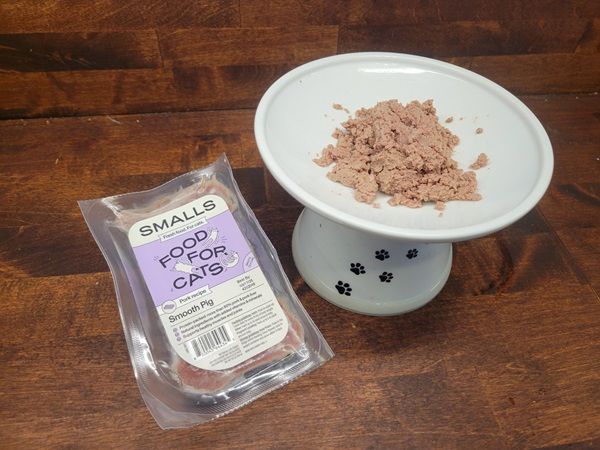


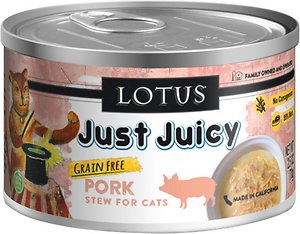

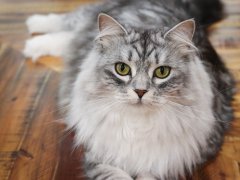

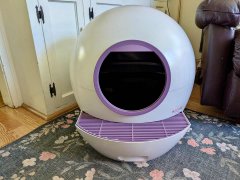
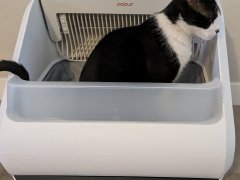

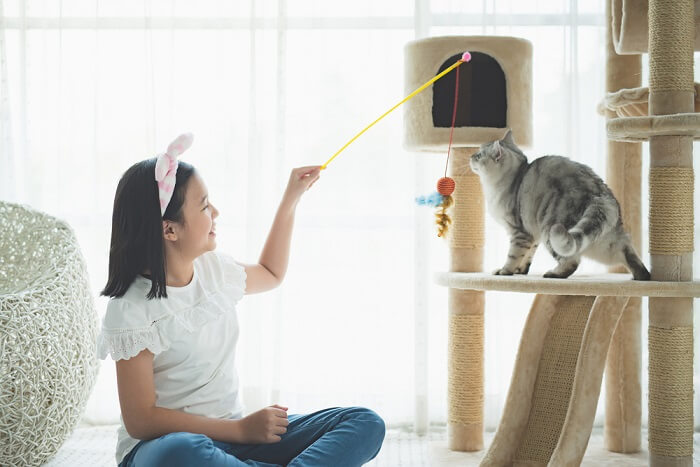


Smalls won’t even let you see their pricing until you waste your time filling out a lengthy quiz asking info about your cats, like their names, etc. If that doesn’t scream “too expensive,” I don’t know what does.